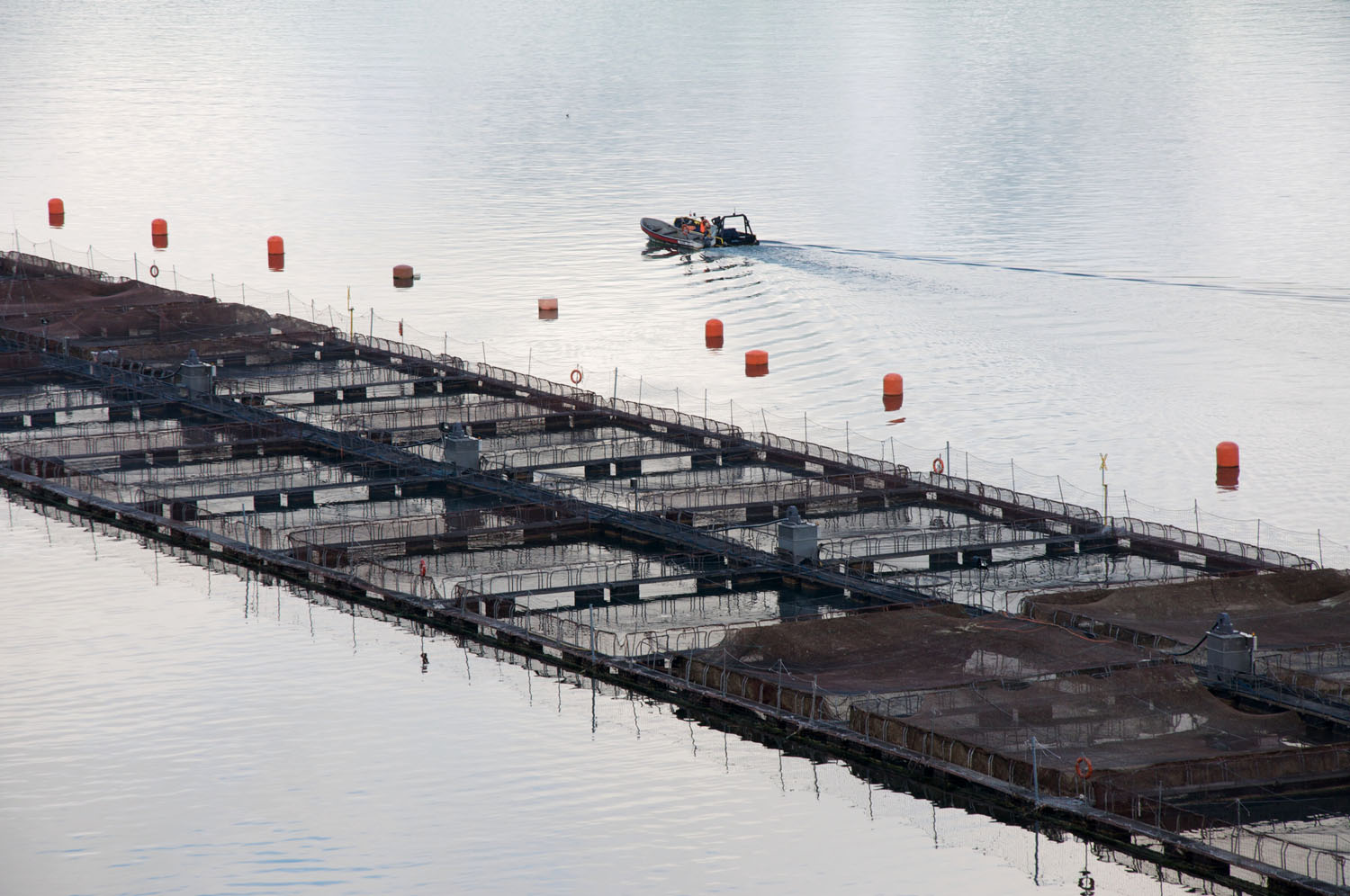 EarthTalk®
From the Editors of E/The Environmental Magazine Dear EarthTalk: What are the differences between farmed versus wild salmon when it comes to human and environmental health? -- Greg Diamond, Nashville, TN Salmon farming, which involves raising salmon in containers placed under water near shore, began in Norway about 50 years ago and has since caught on in the U.S., Ireland, Canada, Chile and the United Kingdom. Due to the large decline in wild fish from overfishing, many experts see the farming of salmon and other fish as the future of the industry. On the flip side, many marine biologists and ocean advocates fear such a future, citing serious health and ecological implications with so-called “aquaculture.” George Mateljan, founder of Health Valley Foods, says that farmed fish are “far inferior” to their wild counterparts. “Despite being much fattier, farmed fish provide less usable beneficial omega 3 fats than wild fish,” he says. Indeed, U.S. Department of Agriculture research bears out that the fat content of farmed salmon is 30-35 percent by weight while wild salmons’ fat content is some 20 percent lower, though with a protein content about 20 percent higher. And farm-raised fish contain higher amounts of pro-inflammatory omega 6 fats instead of the preponderance of healthier omega 3s found in wild fish. “Due to the feedlot conditions of aquafarming, farm-raised fish are doused with antibiotics and exposed to more concentrated pesticides than their wild kin,” reports Mateljan. He adds that farmed salmon are given a salmon-colored dye in their feed “without which their flesh would be an unappetizing grey color.” Some aquaculture proponents claim that fish farming eases pressure on wild fish populations, but most ocean advocates disagree. To wit, one National Academy of Sciences study found that sea lice from fish farming operations killed up to 95 percent of juvenile wild salmon migrating past them. And two other studies—one in western Canada and the other in England—found that farmed salmon accumulate more cancer-causing PCBs and dioxins than wild salmon due to pesticides circulating in the ocean that get absorbed by the sardines, anchovies and other fish that are ground up as feed for the fish farms. A recent survey of U.S. grocery stores found that farmed salmon typically contains 16 times the PCBs found in wild salmon; other studies in Canada, Ireland and Great Britain reached similar conclusions. Another problem with fish farms is the liberal use of drugs and antibiotics to control bacterial outbreaks and parasites. These primarily synthetic chemicals spread out into marine ecosystems just from drifting in the water column as well as from fish feces. In addition, millions of farmed fish escape fish farms every year around the world and mix into wild populations, spreading contaminants and disease accordingly. Ocean advocates would like to end fish farming and instead put resources into reviving wild fish populations. But given the size of the industry, improving conditions would be a start. Noted Canadian environmentalist David Suzuki says that aquaculture operations could use fully enclosed systems that trap waste and do not allow farmed fish to escape into the wild ocean. As for what consumers can do, Suzuki recommends buying only wild-caught salmon and other fish. Whole Foods and other natural foods and high end grocers, as well as concerned restaurants, will stock wild salmon from Alaska and elsewhere. CONTACTS: Health Valley Foods, www.healthvalley.com; USDA, www.usda.gov; David Suzuki Foundation, www.davidsuzuki.org.
GETTING A NIGHTS SLEEP HELPS 
The summer weekends are equated with relaxation; fun in the sun and warm weather getaways. But, getting there is half the battle… Inconvenient long lines, pushy patrons, travel delays, and the overall discomforts go hand in hand with summer travel. Fortunately, there is an easy way to bring comfort to long-haul trips. Weighing in at just 3oz, AgroLabs Peaceful Sleep™ is a unique formula that consists of chamomile extract, lavender, L-Theanine, Passion Flower extract and other key ingredients to help provide for a soothing, restful sleep. The formula supports relaxation, provides the nutrients to support total body cellular renewal and allows for an overall healthier night’s sleep; it allows consumers to awake refreshed and energized, reaching a deep level of REM sleep. One shot of this “au natural” super juice will have you wishing you were still in transit. Plus, the convenient size allows you to bring them everywhere – even on board airplanes.
|





